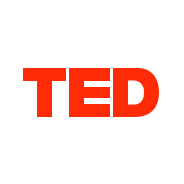Farming is the worst thing humanity has ever done to the planet, says journalist George Monbiot. What's more: the global food system could be heading toward collapse. Detailing the technological solutions we need to radically reshape food production -- from lab-grown, protein-rich foods to crops that don't require plowing -- Monbiot shares a future-focused vision of how humanity could feed itself without destroying the planet.

Wissenschaft & TechnikTalk
TED Talks Science and Medicine Folgen
Some of the world's greatest scientists, doctors and medical researchers share their discoveries and visions onstage at the TED conference, TEDx events and partner events around the world. You can also download these and many other videos free on TED.com, with an interactive English transcript and subtitles in up to 80 languages. TED is a nonprofit devoted to Ideas Worth Spreading.
Folgen von TED Talks Science and Medicine
136 Folgen
-
Folge vom 18.01.2023Can we feed ourselves without devouring the planet? | George Monbiot
-
Folge vom 06.01.2023How to harness the ancient partnership between forests and fungi | Colin AverillIf we want to better understand the environment and combat climate change, we need to look deep underground, where diverse microscopic fungal networks mingle with tree roots to form symbiotic partnerships, says microbiologist Colin Averill. As we learn more about which of these fungi are most beneficial to forest health, we can reintroduce them into the soil -- potentially enhancing the growth and resilience of carbon-trapping trees and plants. Hear more about the emerging science aiming to supercharge forest ecosystems, one handful of soil at a time.
-
Folge vom 14.11.2022The wheat field that could change the world | Guntur V. SubbaraoCrop physiologist Guntur V. Subbarao and his team have developed an antibiotic-infused strain of wheat that naturally combats harmful, fertilizer-eating bacteria -- a "monster" contributor to climate change. Learn more about how this breakthrough could once again revolutionize agriculture, increasing crop yields and protecting our planet at the same time.
-
Folge vom 28.10.2022A virus-resistant organism -- and what it could mean for the future | Jason W. ChinWhat if we could use the power of DNA to create a sustainable, circular economy? In a talk about breakthrough science, synthetic biologist Jason W. Chin describes his team's work rewriting the genetic blueprint of cells to create a virus-resistant organism -- the largest synthetic genome ever made and a first step towards reimagining what life can become. Learn more about how this advancement could lay the groundwork for the sustainable factories of the future, capable of producing plastics, antibiotics and more.
